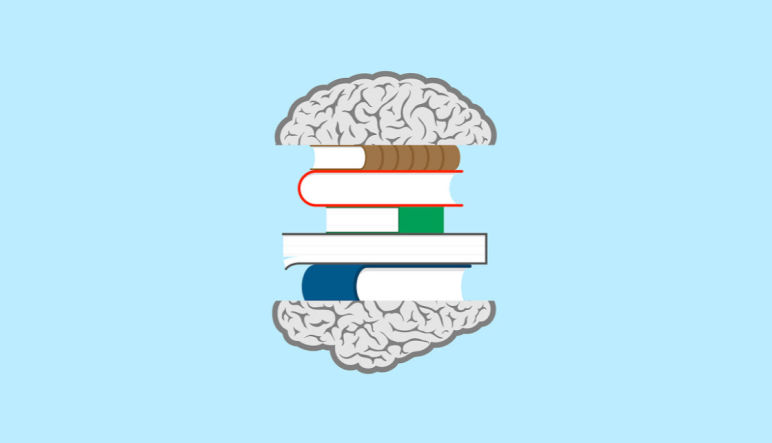I f you’re trying to understand our world’s economy, here are 7 recommended books on economics that everybody should read.
f you’re trying to understand our world’s economy, here are 7 recommended books on economics that everybody should read.
Economics is a complex science that can teach financial and strategic thinking.
Plus economics can even explain the reasons why entire nations develop – or don’t develop.
If you are interested in economics, or a student on the subject, I recommend you read these amazing economics books below – even more than traditional textbooks.
As you might know, I am a bestselling wellness author with about 2 million books sold globally. I founded a groundbreaking video course called The Anxiety Cure.
I love sharing insights and strategies to help people to live their highest potential lives.
With this in mind I put together this quick guide with a selection of the 7 best books on economics.
Top 7 Recommended Books on Economics that Everybody Should Read
I love these recommended economics books – for anybody to read. Plus, these books on economics will be particularly helpful for students who are seeking economics homework help, and you can download the publications for free from any digital library.
1. Jean Tyrol’s The Economics of the Common Good
In this recommended economics book, the author explains how economic principles and laws can be applied to all aspects of life.
Surprisingly, he has been able to relate economics not only to financial literacy and business process building, but also to…
- the introduction of innovation in domestic and scientific issues
- and the introduction of the latest technology
- plus even global warming
The book debunks the myths that knowledge of economics is of no use to the average person.
2. David Greber, The First 5,000 Years of History
In his book, Graeber looks at the entire world economy as debt in its various forms:
- barter
- money
- mortgages
- etc.
Through extensive research in anthropology, he was able to prove that such an economic model has existed for virtually the entire time that “The Reasonable Man” as a biological species has been known.
And the main purpose of the book is to link economics with…
- history
- sociology
- cultural studies
- other sciences of human behavior
3. Thomas Sowell, Facts and Fallacies in Economics
I recommend this economics book for anybody who has never studied economics as serious science.
The author talks about…
- popular myths in economic science
- how they affect human behavior,
- and how they change the impression of global problems and disasters
4. Steven Levitt, Stephen Dubner, Freakonomics
Leavitt and Dubner have been able to get a handle on…
- how social factors influence the economic condition of entire cities, and vice versa
- and how economic causes can influence human behavior
I love this book because it contains a lot of interesting stories – which are still controversial among experts.
Even if you don’t see this book as a learning tool, there are many interesting ideas and perspectives to be gleaned from it.
5. Edward Miguel, Raymond Fisman Economic Gangsters: Corruption, Violence, and National Poverty
This book dissects the problem of corruption from an economic rather than a legal perspective.
Experts in economics have long been interested in the causes and consequences of corrupt practices.
Miguel and Fisman’s book brings together…
- an overview of all methods of studying criminal actions in economics
- a description of the relationship between corruption, culture, and mentality
6. Daron Acemoglu, James Robinson, Why Some Countries are Rich and Others Poor
This economics book has already become a classic in world economics.
The author explains…
- what most affects the prospect of development or decline of countries and people
Usually historians and anthropologists note the importance of…
- geography
- resources
- climate
- neighboring states
Economists Acemoglu and Robinson disagree.
Instead they identified…
- various institutions (i.e., rules, laws, and enforcement mechanisms) as the main condition
7. Adam Smith, The Wealth of Nations
Smith is one of the founders of economics as a scientific movement. His work was one of the first books on economics. It is mandatory reading for 1st-year economics students, including as the first historical example of political economy.
Adam Smith was able to describe the nature and development of the capital of different nations. Plus he clearly explained the causes of changes in human productivity.
Live your very best life
Join my groundbreaking video course: The Anxiety Cure.
Think happier. Think calmer.
Think about subscribing for free weekly tools here.
No SPAM, ever! Read the Privacy Policy for more information.
One last step!
Please go to your inbox and click the confirmation link we just emailed you so you can start to get your free weekly NotSalmon Happiness Tools! Plus, you’ll immediately receive a chunklette of Karen’s bestselling Bounce Back Book!


 f you’re trying to understand our world’s economy, here are 7 recommended books on economics that everybody should read.
f you’re trying to understand our world’s economy, here are 7 recommended books on economics that everybody should read.